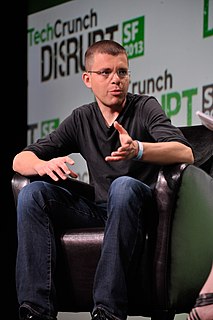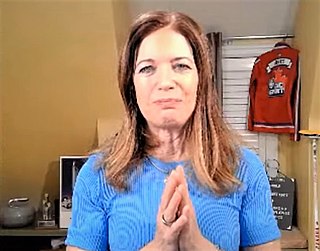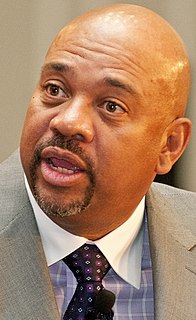A Quote by Max Levchin
Think of Slide as a giant media network for people to transmit information. The content that's in there now has been provided by users - it's whatever they want it to be.
Related Quotes
Authors and publishers want fair compensation and a means of protecting content through digital rights management. Vendors and technology companies want new markets for e-book reading devices and other hardware. End-users most of all want a wide range and generous amount of high-quality content for free or at reasonable costs. Like end-users, libraries want quality, quantity, economy, and variety as well as flexible business models.
We want the government to be controlled by all the people, not by the richest 1%. That's always been the first demand. That's a simple enough message, and I think it's pretty clear now, even though much of the media has been disingenuous in its coverage. We don't want the heads of the biggest industries to make all the decisions, because they're not for the people. They're for the corporations. Power to the people!
We hypostatize information into objects. Rearrangement of objects is change in the content of the information; the message has changed. This is a language which we have lost the ability to read. We ourselves are a part of this language; changes in us are changes in the content of the information. We ourselves are information-rich; information enters us, is processed and is then projected outward once more, now in an altered form. We are not aware that we are doing this, that in fact this is all we are doing.
When there is this giant narrative, when there is a singular story out there like there is right now about the Russians hacking the election so that Donald Trump would win - when the media is pumping it and the Democrats are quoting the media and the media's quoting the Democrats and it's just like a giant blanket thrown all over the country - don't believe the story. It's made up! It is a script. I call the daily soap opera.
We tend to think of Steam as tools for content developers and tools for producers. We're just always thinking: how do we want to make content developers' lives better and users' lives a lot better? With Big Picture Mode, we're trying to answer the question: 'How can we maximize a content developers' investment?'
On the Web, usability is a necessary condition for survival. If a website is difficult to use, people leave. If the homepage fails to clearly state what a company offers and what users can do on the site, people leave. If users get lost on a website, they leave. If a website's information is hard to read or doesn't answer users' key questions, they leave. Note a pattern here?
I think by the next generation either we'll have a lot of idiots who are just completely immersed in media and corporatized information, or we'll have people who enjoy media and corporatized information, but are more interconnected with human beings around the world ... And who share common goals and are willing to accept that they are a global citizen. I think the latter is more the direction.































